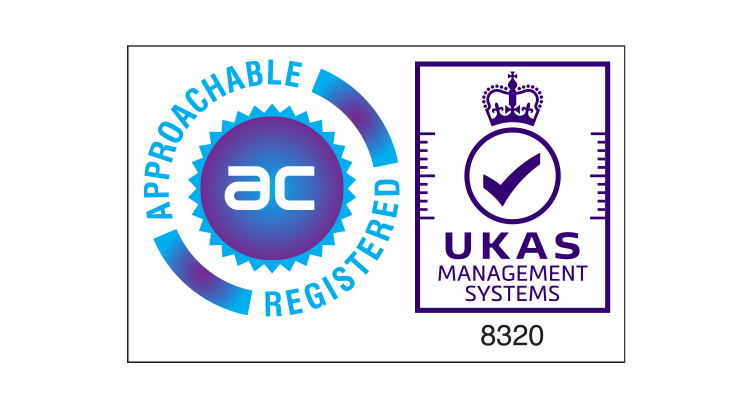How do you manage a field service team?
In today’s highly competitive business environment, efficient field service management (FSM) is vital. For businesses that rely on a mobile workforce, managing a field service team effectively ensures customer satisfaction, enhances productivity, and ultimately drives business growth. However, navigating the complexities of FSM can be challenging, especially for those new to the field. In this blog post, we will explore six essential strategies to help you manage a field service team successfully.
Leveraging Field Service Management Software
One of the cornerstones of effective field service management is choosing the right FSM software. This technology can be a game-changer for your business (we may be slightly biased here). Field service software streamlines and automates various tasks, such as scheduling, dispatching, work order management, and real-time communication between your office staff and field technicians.
When selecting an FSM solution, look for features like:
- Mobile app integration
- GPS tracking and route optimisation
- Dynamic scheduling
- Work order management
- Customer relationship management (CRM) capabilities
- Customisable reporting and real-time analytics
- Asset management
- Lone worker protection integration
By implementing a suitable FSM system, you can expect improvements in overall efficiency, better resource utilisation, and increased customer satisfaction. Choosing a field service solution that natively integrates with other field business systems is a proactive step towards better data accuracy.

Optimising Scheduling and Dispatching
Effective scheduling and dispatching are critical components of managing a field service team. Properly allocating your workforce can balance workloads, minimise travel time and costs, and respond swiftly to emergencies or last-minute changes.
A skill-based scheduling approach ensures that the right technician is assigned to the right job, resulting in higher first-time fix rates and fewer return visits. Route optimisation, facilitated by GPS tracking, allows you to plan the most efficient routes for your technicians, reducing fuel consumption and environmental impact.
Building a Strong Training Programme
Investing in your employees’ development is essential to maintain a highly skilled and motivated mobile workforce. A comprehensive training programme not only equips your team members with the necessary skills but also fosters employee loyalty and job satisfaction.
Regular skills assessments and certifications are an essential part of your training programme. They ensure that your field service team remains up to date with industry standards, technologies, and best practices. Certification programmes can also serve as a valuable marketing tool, showing your commitment to excellence and quality service.
Consider employing a variety of training methods to meet the unique needs of your field service team. Depending on the required skills and knowledge, on-the-job training, e-learning, and mentorship programmes can be practical solutions. Customise your training initiatives to address individual learning styles and preferences and check progress to ensure continuous improvement.
Encouraging Communication and Collaboration
Clear and prompt communication is the glue that holds a field service team together. You can prevent misunderstandings, boost productivity, and enhance team morale by fostering open communication channels between technicians, dispatchers, and customers. Regular team meetings and feedback sessions encourage unity and shared purpose among your field service team members. These gatherings can provide a forum for discussing concerns, brainstorming solutions, and celebrating successes together.
Leverage technology to facilitate efficient communication, such as instant messaging apps, video conferencing, and FSM software with built-in communication tools. Additionally, promote a positive team culture by encouraging collaboration, sharing best practices, and recognising individual and team achievements.
Implementing Performance Incentives
Rewarding your field service team for outstanding performance can boost morale and encourage a high level of service quality. Consider implementing a performance-based incentive system that rewards technicians based on KPIs, such as first-time fix rates, customer satisfaction scores, and adherence to safety protocols. This approach can foster a healthy sense of competition within your team and motivate technicians to improve their performance continuously.
Emphasising Customer-Centricity
A strong focus on customer satisfaction lies at the heart of successful field service management. By prioritising the needs and expectations of your customers, you can improve your field service operations and ultimately boost your bottom line. To exceed customer expectations, consider implementing strategies such as:
- Proactive maintenance: Regularly servicing equipment and addressing potential issues before they escalate can reduce downtime and save customers time and money.
- Real-time updates: Keep customers informed about the progress of their service requests, including estimated arrival times and any changes to the schedule.
- Seamless experience: Ensure a consistent and positive experience across all customer touchpoints, from the first service request to post-service follow-up.
By placing customer satisfaction at the forefront of your field service management efforts, you will retain existing customers and attract new ones through positive word-of-mouth and referrals.
Utilising Data for Continuous Improvement
In the world of field service management, data is king. The wealth of information generated by your field service operations offers invaluable insights into areas for improvement and growth. Key performance indicators (KPIs), such as first-time fix rates, average response times, and customer satisfaction scores, can guide your decision-making and drive continuous improvement.
Additionally, utilise predictive analytics to identify trends and potential issues before they become problematic and benchmark your performance against industry standards to ensure you remain competitive. By adopting a data-driven approach, you can optimise your field service processes and better serve your customers. Continuously analysing and acting upon data insights, your field service team can remain agile and responsive in the face of evolving customer needs and market conditions. This ensures your operation adopts a proactive approach to change management.
Embracing Remote Diagnostics and Support
To further improve the efficiency of your field service team, consider incorporating remote diagnostics and support into your FSM strategy. By using Internet of Things (IoT) devices and remote access technology, technicians can diagnose and troubleshoot issues from a distance, potentially resolving problems without needing an on-site visit. In cases where on-site support is needed, remote diagnostics can help technicians arrive better prepared with the necessary tools and parts.
Managing Field Service Teams
Managing a field service team is a complex and demanding task that requires a solid understanding of field service management principles and a commitment to ongoing improvement. By leveraging the right FSM software, optimising scheduling and dispatching, building a solid training programme, fostering effective communication and collaboration, utilising data-driven insights, and maintaining a customer-centric approach, you can successfully navigate the challenges of field service management and drive your business towards success.












